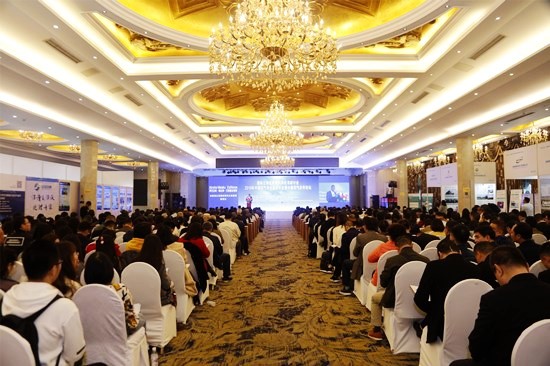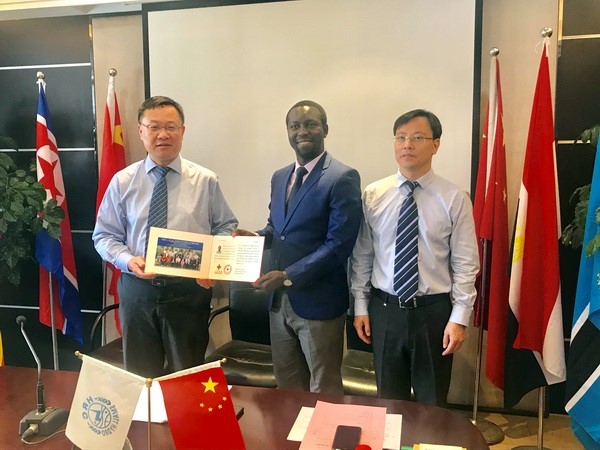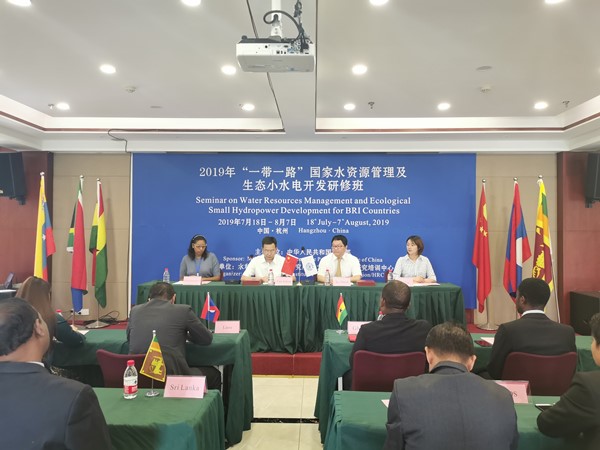Proposal highlights multilateralism, dialogue in facing challenges: Experts
By EDITH MUTETHYA in Nairobi
An aerial drone photo taken on Aug 28, 2025 shows an exterior view of the main venue of the Shanghai Cooperation Organization Summit 2025 in North China's Tianjin. [Photo/Xinhua]
African experts have welcomed the Global Governance Initiative proposed by President Xi Jinping at the "Shanghai Cooperation Organization Plus" Meeting in Tianjin on Sept 1, describing it as both timely and visionary.
Stephen Ndegwa, executive director of South-South Dialogues, a Nairobi-based communications development think tank, said the GGI does not seek to overturn the existing order but to rejuvenate it — making it fairer, more inclusive, and better aligned with current realities.
"Just as the Communist Party of China has consistently adapted governance to China's changing conditions while remaining grounded in people-centered development and collective progress, so too must global governance reflect the needs of the 21st century, rather than the power structures of 1945," he said.
Ndegwa said the initiative's core commitments — adhering to sovereign equality, abiding by international rule of law, practicing multilateralism, advocating a people-centered approach, and focusing on taking real actions — draw from China's own governance experience of balancing continuity with reform, respecting diversity while seeking common goals, and ensuring that institutions deliver tangible benefits.
He said it fuses the wisdom of history with a vision for the future, drawing lessons from the anti-fascist struggle and underscoring that only fairness and unity can sustain peace while correcting today's inequities.
"The GGI ensures the Global South, particularly Africa, is not a bystander but a co-architect of the international order," Ndegwa said.
Patrick Maluki, chair of the Department of Diplomacy and International Studies at the University of Nairobi, said the GGI complements China's other major proposals — the Global Development Initiative, Global Security Initiative and Global Civilization Initiative — by outlining a pathway toward an international order that is inclusive, equitable, and collaborative.
Shared responsibility
"These initiatives emphasize dialogue over confrontation, partnership over zero-sum competition, and shared responsibility over unilateral dominance," Maluki said.
He said that for African countries and the wider Global South, the four initiatives represent a continuation of the post-World War II pursuit of sovereignty, justice and development.
"Just as our predecessors resisted aggression and contributed to the establishment of a more stable global order, today we must work together to strengthen international institutions, promote sustainable development, and address shared challenges — from climate change and pandemics to regional security and economic inequality," Maluki said.
"By engaging with these initiatives, we contribute to shaping a world that is more just, peaceful, and inclusive."
He said the GGI highlights the importance of rules-based systems, multilateralism and inclusive dialogue in tackling complex and interconnected challenges such as climate instability, technological disruption, transnational terrorism and economic disparities.
"No single nation can address these challenges alone. Success depends on cooperation, trust, and adherence to shared principles," Maluki said.
James Shikwati, director of the Inter Region Economic Network, an independent African think tank, said the GGI opposes value imposition, allowing Africa to celebrate its mosaic of culture.
He said the initiative is also critical for harnessing the continent's youthful population into strategic talent pipelines, enabling them to plug into global value chains.
China offers the continent alternatives for development, using security as an organizing principle, culture and respect for diversity of values as the glue, and international governance reform as an operating system, Shikwati said.
Cavince Adhere, an international relations scholar at Jomo Kenyatta University of Agriculture and Technology, in Kenya, described the GGI as China's proposal to rethink how countries cooperate internationally, anchored in respect for sovereignty, promotion of the common good and action-oriented cooperation.
He said the initiative will play a key role in jump-starting important conversations on how countries can collaborate in an equitable and respectful way that delivers prosperity for all, big or small.
Peter Kagwanja, chief executive officer at the Africa Policy Institute, based in Nairobi, said the initiative will help advance the vision of a new multipolar order.
Source: China Daily







